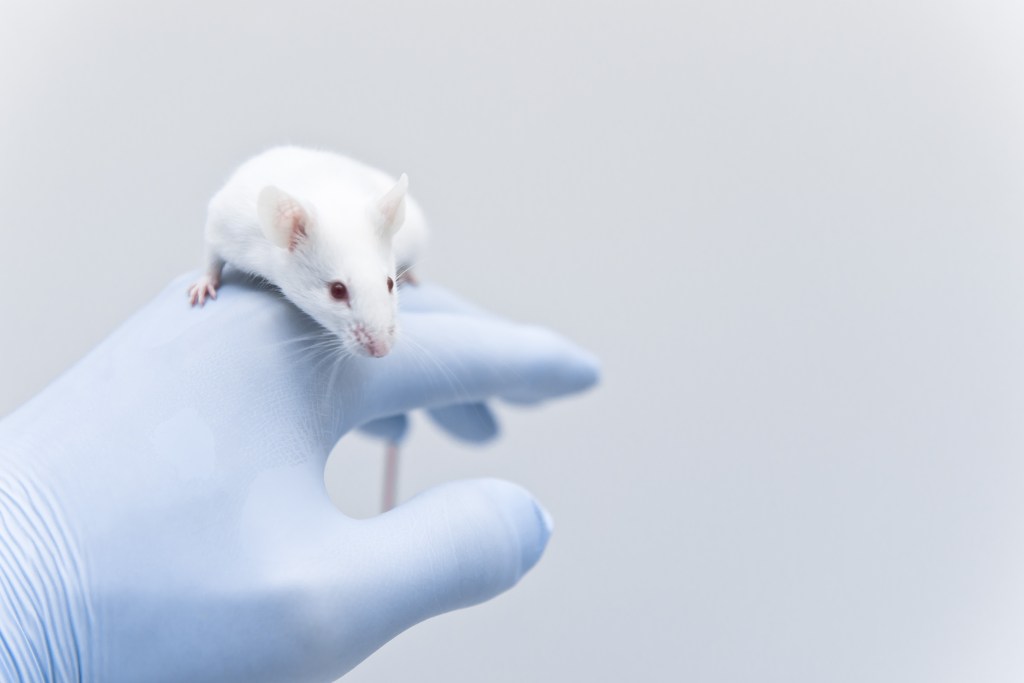Beau Biden, the former state attorney general of Delaware and the eldest son of Vice President Joe Biden, died last Saturday at age 46 after a battle with brain cancer. Today, a crowd of around 1,000 people — including President Barack Obama, Bill and Hillary Clinton, and several other leading American political figures — gathered for the funeral at St. Anthony of Padua Roman Catholic Church in Washington, DC.
While officials have not revealed the type of brain cancer that resulted in Beau Biden’s death, the loss comes as Congress considers the 21st Century Cures Act, a piece of legislation that experts say could lead to new treatments for brain tumors and other types of cancer.
Videos by VICE
Sally Davis, CEO of the National Brain Tumor Society, a nonprofit dedicated to improving the pace of drug discovery and development, wrote an editorial last week for The Hill urging Congress to approve the bill, which she said could “jumpstart new treatments for brain tumors and many other cancers while optimizing the FDA’s approval process.”
The House Energy and Commerce Committee recently passed the legislation with a unanimous 51-0 vote. Representative Fred Upton, a Republican from Michigan and the chairman of the Energy and Commerce Committee, has said the bill will speed up the cumbersome clinical trials needed to get FDA approval for new types of drugs and treatments. Upton said the proposal would get rid of “unnecessary paperwork” that “wastes time and money.”
Related: Major Cancer Charities Shut Down Amid $187 Million Donation Scam
“Clinical trials are slow and expensive,” Upton wrote in early May. “In fact, their cost and time to completion are at all-time highs. While there has been a number promising advancements, our current regulatory structure does not fully embrace the potential of personalized medicine.”
Asked about the impact that Beau Biden’s death might have on the 21st Century Cures Act, Upton told VICE News that he and Joe Biden have discussed the legislation previously, and that the vice president supports it.
“My heart breaks for the vice president as he mourns the loss of his son,” Upton said. “Vice President Biden is a friend and a leader. He and I have spoken about the 21st Century Cures initiative, and we both understand this bill, this conversation, is something that will help deliver hope to all patients and their loved ones. The vice president has had to deal with too much grief. I look forward to working with him and finishing the hopeful work of 21st Century Cures.”
Representative Diana DeGette, a Democrat from Colorado who co-authored the bill, has said it would provide “billions in support for our premier research and development institutions and comprehensive reform of our systems.”
Nearly 23,000 adults will be diagnosed with primary brain cancers this year, according to Cancer.net, a website of the American Society of Clinical Oncology. Brain tumors are the leading cause of cancer-related death in children under 14. People diagnosed with glioblastoma multiforme (GBM), the most common and aggressive form of primary malignant brain tumor, typically survive less than 15 months.
Critics have taken issue with the portions of the legislation devoted to the development of new drugs. According to the Wall Street Journal, language in one section would allow the FDA to approve additional uses for drugs without having to rely on randomized controlled trials.
“We don’t know what will happen,” Thomas Moore, senior scientist at the Institute for Safe Medicine Practices, a non-profit that tracks drug safety issues, told the Journal. “Will it open the door to a wholesale reworking of clinical trial requirements? They are pushing the FDA to consider types of evidence that’s not been previously regarded as reliable enough.”
Related: Killing Cancer — A VICE on HBO Special Report
Even without the help of the 21st Century Cures Act, scientists are closing in on groundbreaking new treatments that have the potential to revolutionize the way doctors fight cancer. In February, VICE on HBO broadcast “Killing Cancer,” a special report that focused on the way viruses such as measles and HIV are being used to attack cancer cells and shrink tumors. The episode also helped generate more than $2 million in cancer research donations.
According to theWashington Post, Beau Biden received traditional forms of treatment after his initial cancer diagnosis in August 2013, undergoing surgery, radiation, and chemotherapy. He was able to return to work in November 2013. As a major in the Delaware National Guard and an Iraq War veteran, when Biden’s cancer recurred this spring he received treatment at the Walter Reed National Military Medical Center.
Both the House of Representatives and the Senate adopted resolutions expressing sorrow over Beau Biden’s death. According to the Associated Press, the Beau Biden Foundation for the Protection of Children, established last week to continue his efforts to protect children from sexual predators, has already received more than 1,100 donations totaling roughly $175,000.
Follow Purvi Thacker on Twitter: @purvi21
VICE News’ Kayla Ruble contributed reporting



